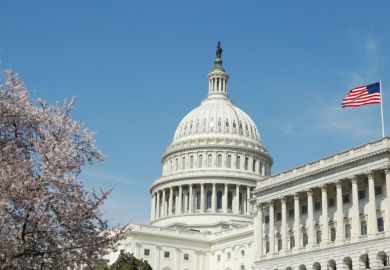A vice-chancellor has warned that the government’s focus on judging English higher education through graduate earnings will “downgrade” excellent universities outside London, while the sector regulator has announced that it will measure value by polling students and graduates.
The Office for Students published its “value for money” strategy on 18 October. The legislation which created the new regulator gave it a duty to “promote value for money in the provision of higher education”.
With definitions of value for money hotly contested, the OfS says in the strategy that its “primary measure of value for money will be based on the perceptions of students and graduates”. “This will allow us to monitor progress without imposing our own definition of value for money on students,” the strategy says.
In practice, this will mean “surveying students and graduates about their views on value for money”, while gaining “additional insight” from “external research” including “studies of the Longitudinal Educational Outcomes dataset on graduate earnings”.
The focus of the government and its review of post-18 education on LEO, which looks at graduate earnings by course and by university, has brought criticism from the sector.
Sir Nigel Carrington, vice-chancellor of the University of the Arts London, told a Higher Education Policy Institute event that LEO data were “deeply flawed”, highlighting that they focused on early career earnings and did not take account of part-time earnings or self-employment.
He also said that LEO “doesn’t distinguish between different types of students in different parts of the country”, noting the disparity in earnings between different regions of the country.
Universities should engage with the OfS, the Department for Education and the Treasury so as to define value in a “much more grown-up way”, Sir Nigel argued.
The societal benefits of universities in increasing knowledge exchange, social cohesion, well-being and “money saved for the NHS” through higher levels of health among graduates were all elements of the value of higher education, Sir Nigel said.
“Many of the greatest universities in this country are not in London, they are not rich and they do not have high graduate earnings. What they have is a fundamental role underpinning the cities in which they are based,” he added.
“Saying that we should downgrade those universities because the earnings of their graduates are lower than the earnings graduates in London…is, let’s face it, completely counterproductive to the health of the country.”
POSTSCRIPT:
Print headline: OfS to poll students on value for money
Register to continue
Why register?
- Registration is free and only takes a moment
- Once registered, you can read 3 articles a month
- Sign up for our newsletter
Subscribe
Or subscribe for unlimited access to:
- Unlimited access to news, views, insights & reviews
- Digital editions
- Digital access to THE’s university and college rankings analysis
Already registered or a current subscriber?








